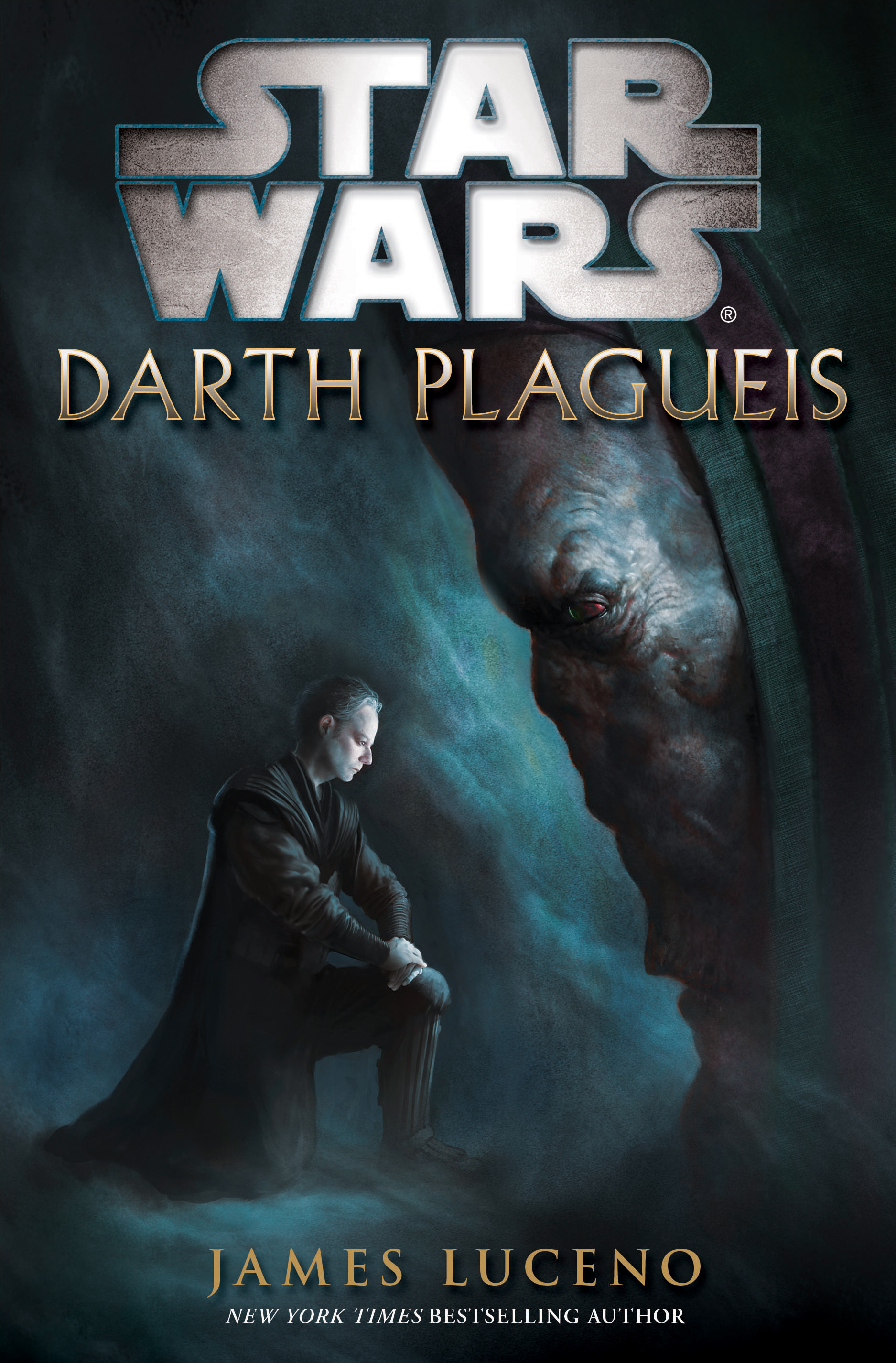"Darth Plagueis was a Dark Lord of the Sith so powerful and so wise, he could use the Force to influence the midi-chlorians to create life. He had such a knowledge of the dark side, he could even keep the ones he cared about from dying."
―Palpatine.
This mysterious reference made during Revenge of the Sith is the basis for the novel which I just finished. Despite the title, however, the novel isn't really about Darth Plagueis. It's, instead, as close as we're going to get for an Emperor Palpatine biography. It tells us where he came from, what his goals were, and how he became corrupted to the Dark Side.
As always, James Luceno is a master of interweaving the Star Wars Expanded Universe into the narrative in such a way as to not overwhelm new readers. Someone who has never picked up a Star Wars book in their life could read and enjoy Darth Plagueis.
One element I liked is Darth Plagueis continues to exist alongside Palpatine long after you'd think the later would have killed him. Indeed, at the risk of spoilers, Plagueis' fate as revealed in Revenge of the Sith doesn't occur until right before the beginning of the movies. This means Darth Maul existed very clearly in violation of the Rule of Two. The book addresses this but not in a manner I like. I'll cover more on that later.
Overall, I liked this novel. It's interesting to get into the heads of other Sith and it's nice to meet one who isn't pure malevolence all the time. James Luceno does an excellent job of making Darth Plagueis evil while making it clear he's not nearly in the same league of evil as his apprentice. Indeed, Darth Plagueis has the dream of ending the Rule of Two because he thinks it's idiotic and wasteful.
Palpatine, by contrast, is pretty much what I imagine what Damien Thorne from the Omen movies would be if he grew up in the Star Wars universe. He's a high-functioning psychopath who Darth Plagueis nurtures and molds into something infinitely more dangerous than himself. There's references to the Sith'ari prophecy too. I'm inclined to believe that while Darth Bane destroyed the Sith to make them stronger, it was Darth Sidious who transcended all limits.
The treatment of Darth Maul is one I'm not fond of, however. James Luceno has an obvious disdain for the Dark Lord and the book refers to him as a False Apprentice. Darth Maul is repeatedly criticized by Sidious and Plagueis as being a mindless brute with no subtlety. There's even an enormous take-that at his previous appearance in Darth Maul: Shadow Hunter. It's kind of shocking after The Clone Wars depicts Maul as every bit as intelligent as a Sith Lord should be and twice as manipulative. I think I prefer The Clone Wars version, to be honest.
I'm also not too fond of Count Dooku's depiction in Darth Plagueis. Contrary to the idea he was a good Jedi knight and political idealist corrupted to the Dark Side by Darth Sidious, Dooku more or less corrupts himself. He's eager to learn about the Dark Side, dismissive of its dangers, and all-too-eager to tear down the Republic with war. His comments about the newly-found Chosen One are particularly dismissive but reference an obscure bit of lore found in the Star Wars D20 tabletop game.
The meat of the books is the Old Republic's politics and Darth Sidious' manipulations. Plagueis is no slouch in this department but I give kudos to Luceno for showing the difference in skill level between two masters. Darth Sidious' finest moment is when he's causally having lunch with a colleague only to watch him discover his entire family has been killed. All just so Sidious could gain a minor boost to his plans.
I also appreciated how Darth Sidious and Plagueis were retconned into being responsible for a number of the more questionable aspects of the Prequel's storytelling. How does a Jedi Master get enough money to pay for a clone army? How does a fourteen-year-old girl get to be elected head of a planetary government? Luceno also makes the issue of trade taxation and how they relate to blockading Naboo crystal clear.
Darth Plagueis' experiments with the midiclorians encompass a reasonable part of the book, though Luceno takes time to separate them from the Force's mysticism. We also get a semi-answer as to the nature of Anakin Skywalker's divine birth, which I won't spoil here. I'll call it satisfying and leave it at that. There's only so much you can do with a premise which is, simply put, deeply flawed.
In conclusion, I really liked Darth Plagueis and recommend Star Wars fans pick it up. Sadly, I'll say that the book is a little dry at times and watching the villains pull puppet strings can be a little boring. I'm pleased with my purchase, though, and think any diehard Star Wars fans will love it.
9.5/10

No comments:
Post a Comment
Note: Only a member of this blog may post a comment.